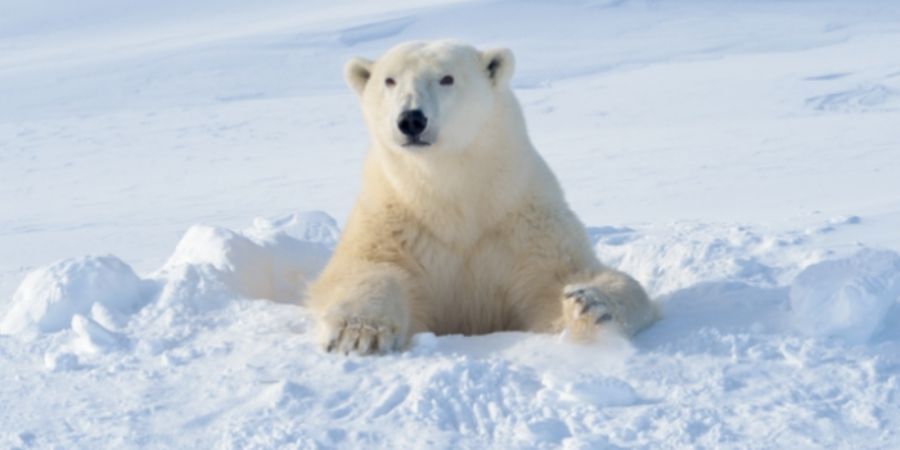

Polar bears have long fascinated us. With their thick, white coats, they look incredibly cuddly, particularly the cubs. In truth, they are the biggest and most powerful bears on the planet. Alas, they may be added to the endangered species list.
Polar bears are an amazingly beautiful animal. Unfortunately, they are under a lot of pressure as a species due to climate change in the Arctic. Receding ice and pollution issues are leading to concerns polar bears may be facing extinction. To better understand polar bears, here’s an overview of this amazing animal.
While penguins are only found in Antarctica, polar bears are only found in the Arctic Circle. This, of course, means they are particularly susceptible to any environmental changes in the Arctic.
Polar bears are the largest bear species by over 400 pounds on average. They are primarily solitary creatures. For food, seal is always on the menu, but they will also scavenge if they come across something tasty. Interestingly, polar bears never drink water. They get it all from their meals.
Polar bears are known for their beautiful white coats. In truth, the coats are not white. The hairs are colorless, hollow tubes that absorb the light giving them the bears their white color. Polar bear skin is actually black like their noses. A common myth is the hollow tubes of polar bear skin can act like fiber optics for your phone. This myth has been disproved, but it gives you an idea of the nature of the hairs.
Female polar bears usually give birth in the last two months of the year. They almost always give birth to twins. When it is time to do so, the mothers will dig dens out of the snow and ice. They will remain in the den without food until the cubs are able to leave.
When born, polar bear cubs are absolutely tiny. They weigh less than one pound, which is pretty amazing considering an adult polar bear can weigh 1,100 pounds on average. After birth, the mother will stay with the cubs for two years and train them in all aspects of polar bear etiquette. After that she abandons them to their own fates. The fathers take no part in the raising of the cubs.
As with many animals, polar bears have some unique characteristics. They can walk up to 40 miles a day and swim up to 60. To catch seals, they stand over a breathing hole and wait for a seal to come up for air. They then swat the seal with their left paw, always their left paw for some unknown reason. After eating, they can go five days without swatting another seal.
As of the writing of this article, polar bear populations are under duress as the Arctic undergoes fundamental changes. Ice is melting and so is the territory of the polar bear. Latest estimates indicate only 25,000 polar bears remain.


